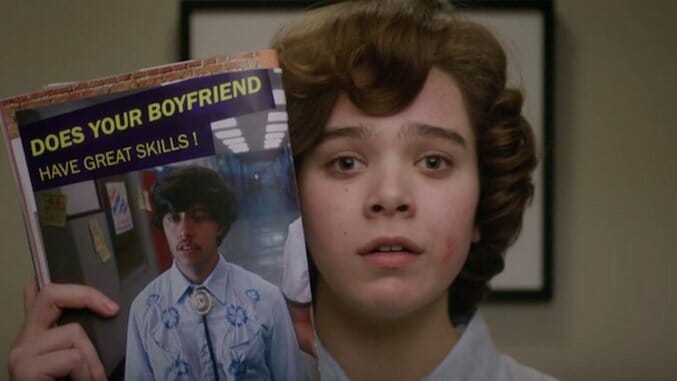The Edge of Seventeen

One of Kenneth Lonergan’s keenest insights about teenagers in his great 2011 film Margaret was that, bereft of the kind of broader view of life and people that comes with maturity, teens have a tendency to think of themselves as the stars of their own personal dramas, regardless of whether an event was truly as earth-shattering as they believed it was. Though Lonergan showed us competing perspectives to offset the self-dramatizing antics of its lead character, Lisa (Anna Paquin), Margaret offered not so much an easy moralistic condemnation of such narcissism as a more empathetic acknowledgment of this being a rite of passage.
Nadine (Hailee Steinfeld), the main character in The Edge of Seventeen, is an equally complex creation, one that writer/first-time director Kelly Fremon Craig views with a similar mix of criticism and compassion. For the most part, Craig makes few attempts to soften Nadine’s brittle edges. After all, her first scene sees her stomping into the classroom of her teacher, Mr. Bruner (Woody Harrelson), and declaring that she’s going to commit suicide, though in a manner that suggests more than she simply wants someone to pay attention to her pain. And yet, while by no means letting her off the hook for her self-absorption, Craig clearly lays out the factors that led to this impasse: the combination of her beloved father Tom’s (Eric Keenleyside) untimely death when she was 13; her jealousy at being perceived as the neglected child compared to her “perfect” brother Darian (Blake Jenner); and her self-esteem issues, which she tries to cover for with her fast-talking wit. Naturally, when her sole best friend, Krista (Haley Lu Richardson), falls in love with Darian, that’s the last straw—though that hardly makes the me-or-him ultimatum that Nadine throws at her, risking their friendship because of her own feelings of inadequacy next to Darian, fair. The freshest thing about The Edge of Seventeen is the way Craig plays with our sympathies toward Nadine, presenting the people around her from her perspective while taking pains to undercut it, exposing it for the self-involvement it is deep down.
If only Craig were quite as acute and insightful a writer as Lonergan was. She’s clearly sharp with the zingers—Nadine’s scenes with the unexpectedly, openly cynical Mr. Bruner are the most delightfully original in that regard—but less so when it comes to crafting coherent characterizations. To some degree, Craig intends us to see Nadine as confused and at times inexplicable. But when she declares to Mr. Bruner that she’s an “old soul” and decries the rest of her generation for their rampant phone usage, there’s nothing in what Craig has shown with the character to suggest any legitimate reason she would claim that for herself in the first place. It feels less organic to the character than transparently “written,” in other words.